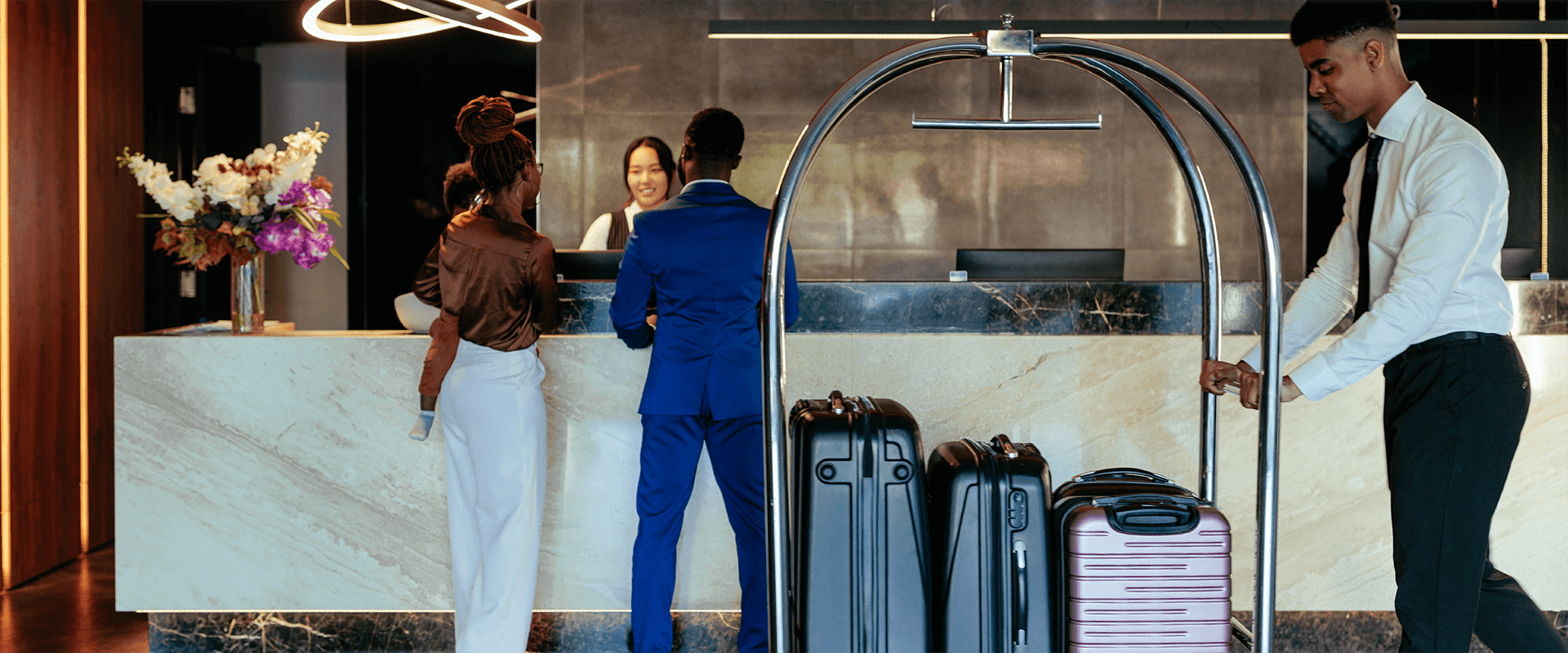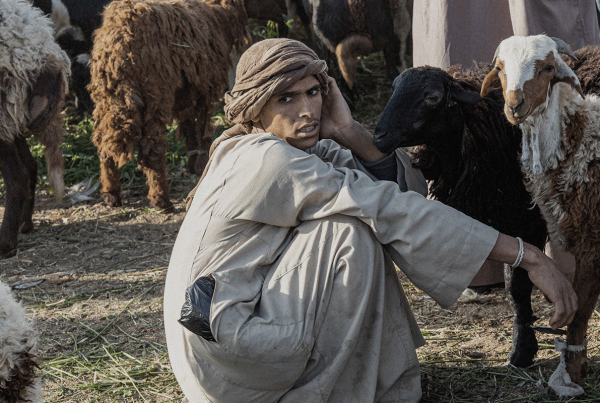While the average traveler can use one of five million hotel rooms in the United States to unwind after a long day of sightseeing, hotels don’t offer the same feeling of comfort for some. Hotels often serve as a hotspot for human trafficking in the U.S. Trafficking in hotels can happen right in front of the eyes of the everyday traveler. Recognizing trafficking and reporting it can interrupt the cycle, which is why education on this topic is essential.
Why Are Hotels Hotspots for Trafficking?
Hotels range from luxurious family vacation spots to inexpensive transitory housing. Each of these options can offer a unique operating ground for trafficking. With people coming and going constantly, it’s easier for illegal behaviors like human trafficking to happen under the radar. With low-security measures at most locations and the commonality of cash payments, traffickers and buyers can easily stay anonymous.
When a family is in financial crisis, they might seek temporary housing in hotels. Migrants might also make use of this kind of housing. Individuals who are in this kind of temporary housing are more susceptible to traffickers, since they are likely in financial need. They may also have other vulnerability factors, such as language barriers, substance dependency, or a lack of social supports that led them to need temporary housing. All of these factors can make it easier for an at-risk individual to be taken advantage of.
Labor Trafficking in Hotels
Hotels and motels can host many different kinds of human trafficking. Labor trafficking commonly occurs within hotels through hospitality exploitation. Hotels and motels are in the top five most common venues for labor trafficking. This form of trafficking can present as forced labor in housekeeping, food service staff, or through other professions that hotels subcontract.
Labor trafficking can also be present in hotels as traveling sales crews use them as a place to stay along their route. Housekeeping is also a very common place for trafficked individuals to work. Although the true prevalence is difficult to determine due to the crime’s hidden nature, between 2007 and 2016, the Human Trafficking Hotline received a total of 10,085 calls reporting labor trafficking in hotels.
Many individuals experiencing labor trafficking (and labor trafficking survivors) in the U.S. are not American citizens. They may come to the U.S. by way of a work visa, or they may enter as an undocumented migrant in search of employment. In some cases, migrants are trafficked into inequitable jobs in hotels, and are oftentimes threatened through verbal, physical, sexual, or psychological abuse into staying in the line of work. Traffickers extort and exploit, making it seem like leaving is not an option.
If a migrant’s visa status is tied to their employment, traffickers can use this to make the survivor feel trapped. In other cases, particularly when a migrant may have illegally accessed the country, traffickers will withhold survivor’s identifying documents, which can make them fearful of legal retribution.
Sex Trafficking in Hotels
Sex trafficking also hides within hotels and motels. According to 2018 data from Polaris Project, 80% of commercial sex occurred at hotels, 20% of traffickers housed survivors in hotels, and 69% of survivors used hotels during travel.
Hotels can function as both incall and outcall locations for sex trafficking. Incall refers to when a client visits a trafficked person’s room within the hotel. This system allows buyers to come and go and retain their anonymity. Outcall refers to when a trafficked person goes to a buyer. Both of these systems can co-exist within hotels.
Sex trafficking can happen at any hotel. A perpetuated stereotype of run-down motels being the only location is outdated and false. Traffickers use various hotels based on different factors such as convenience, accessibility, and availability of buyers. Large events that bring increased foot traffic to hotels, such as concerts or large sporting events, can be another thing traffickers look for since there is an increased customer base and more transit than authorities can fully pay attention to.
The True Trafficking Stories Behind the Statistics
While some of this information can be difficult to grasp due to the overwhelming statistics, here are just a few of the countless stories from survivors about how hotels and motels played a critical role in their trafficking story.
Kat Rosenblatt was just 13 when she was brought to a Miami Beach hotel by her mother, who was actively fleeing an abusive relationship. During her time at this hotel, she was befriended by a 19-year-old girl, “Mary,” who was (unknowing to Rosenblatt) recruiting for a trafficking ring functioning out of a series of Miami hotels.
Rosenblatt formed a friendship with this girl, who was preying on her vulnerabilities. After a month of forming this friendship, she gave her trust to “Mary,” who attempted to sell her virginity to a 65-year-old man for $500.
Savannah Parvu was just 12 years old when she was trafficked from a Florida hotel room. Parvu’s mother sold her daughter to a revolving door of tourists to fuel her drug addiction. Savannah said that the staff of the hotel not only knew what was going on, but they would actively help to escort buyers to and from the room she was being trafficked out of.
Lisa Ricchio was asked by an online friend to visit him in Massachusetts under the false pretense that he had been diagnosed with cancer. This online “friend” turned out to be a trafficker who imprisoned Ricchio at a secluded motel and subjected her to rape, drugging, humiliation, starvation, and theft, all in an attempt to force her into sex trafficking. This trafficker had connections with the owners of this motel, and its secluded location and public reputation for prostitution made it an easy location to trap Ricchio.
Jessica Kay grew up surrounded by domestic violence. After going to community college, she moved to Las Vegas in an attempt to start fresh. She lost her home and car, and while she was in that vulnerable state, she met her trafficker. He groomed her for nearly a year before one night pushing her out of the car and forcing her to make $2,500 by selling sexual services.
This continued until Kay was arrested and fined for solicitation. She says, “Going to jail actually kind of set me free, but I still was in this really vulnerable and unhealthy space, it took me probably 5 or 6 years to understand that I was a victim.”
Countless other stories like these exist. For every story that becomes a news headline, there are thousands more that will never be told. Just because it is difficult to identify the signs of trafficking doesn’t mean it isn’t occurring in communities around the U.S.
Expanding Education and Awareness
Hotels are one of the most common venues for human trafficking. To disrupt this criminal industry, the system of hotel-based trafficking must also be disrupted.
This task may seem impossible, but many states have taken legal action to counteract trafficking. Twelve states require hotel employees to be trained on human trafficking awareness, and more than 800,000 employees have completed this training. This education can be crucial in identifying trafficking where it’s happening, which leads to increased rates of identification and, ultimately, fewer people trapped in trafficking. More states have continued to adopt this training program, and there’s hope that it could be implemented in every state within the U.S.

Take Action
While staff training is critical, personal education holds equal importance. Hotels are essential to travel. When staying at a hotel, you can leverage your knowledge to help identify and report suspicious situations to authorities who are empowered to respond.
Here is a list of common questions you can ask yourself about signs of trafficking that you, as a hotel guest, can be on the lookout for. Does the guest:
- Appear to be deprived of food, water, sleep, basic hygiene, medical care, or other necessities?
- Act fearful, anxious, depressed, submissive, tense, nervous/paranoid, or disassociated/ “checked out?”
- Have bruises or other signs of physical trauma?
- Have tattoos or scars that would indicate branding by a trafficker?
- Have scars, cut marks, burns, or other signs of self-harm/suicidal tendencies?
- Defer to another person to speak for them?
- Appear to be coached on what to say, or have responses that seem rehearsed?
- Have a difficult time providing logical answers to basic questions?
- Appear to be traveling with few or no personal items, such as luggage or other bags?
- Exhibit evidence of being with someone who subjects them to verbal threats, emotional abuse, or other demeaning treatment?
- Seem to be with a “boyfriend,” “girlfriend,” or romantic partner who is noticeably older?
- Appear to be with a group of girls traveling with an older male or female?
- Dress inappropriately for their age, or in out-of-season clothing?
- Appear to have no control over their money and/or ID?
- Reference someone in their group being their “sugar daddy/sugar momma,” or refer to themselves as a “sugar baby?”
- Reference traveling to other cities or towns frequently?
- Talk about getting paid very little or not at all for the work they do?
- Appear to not have freedom of movement?
On their own, none of the above signs make it certain that someone is being trafficked. However, they can serve as red flags that may warrant further investigation. If multiple of these factors are present at once, the chance that exploitation may be happening is higher.
Along with learning the signs listed above, below are other resources to further educate yourself on how to recognize human trafficking in hotels. You could save someone’s life simply because you know what to look for.
- Human Trafficking Response Guide for the Hospitality Industry (Provides specific indicators for hotel/motel staff)
- 12 common behaviors that can indicate human trafficking
- On-Ramps, Intersections, and Exit Routes: A Roadmap for Systems and Industries to Prevent and Disrupt Human Trafficking







